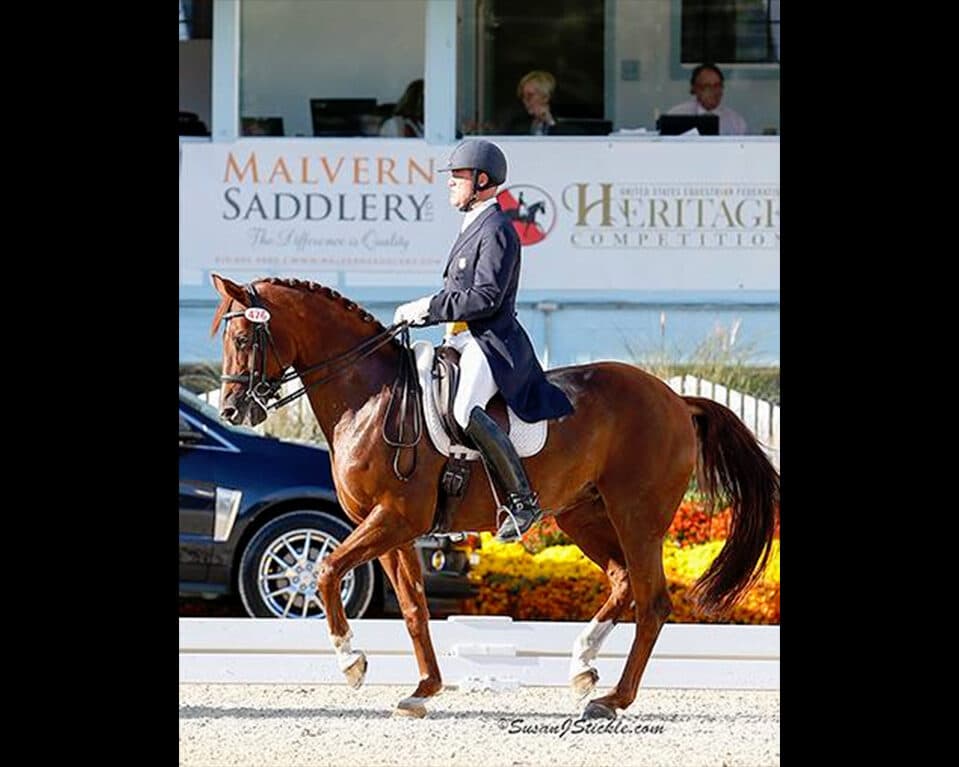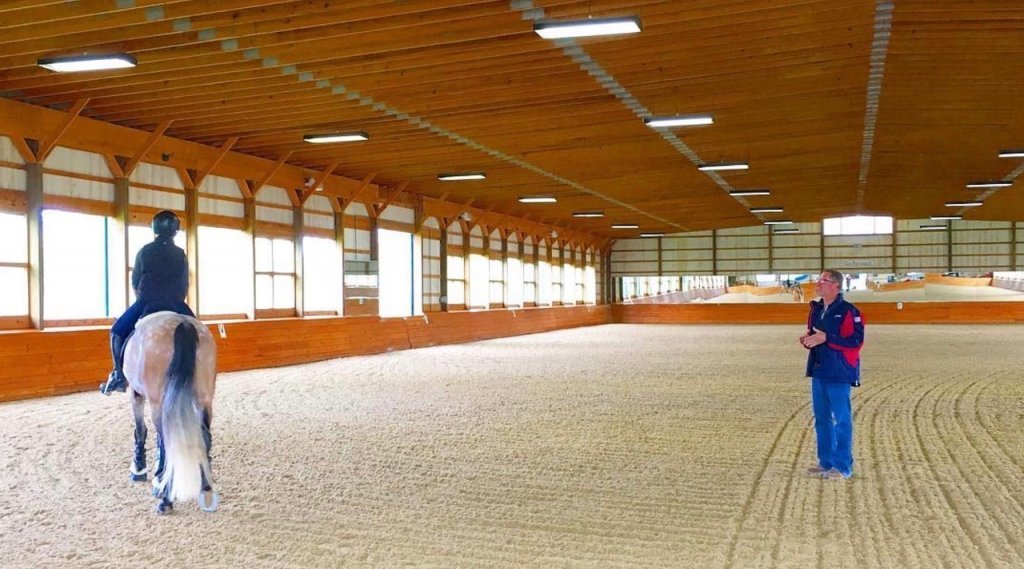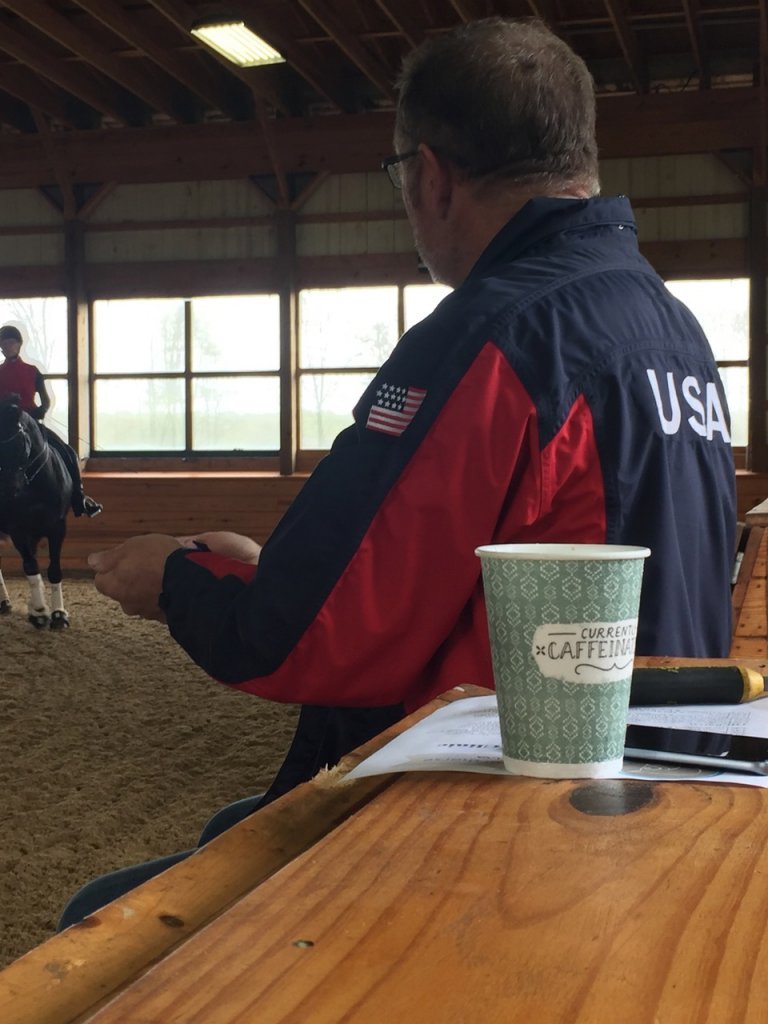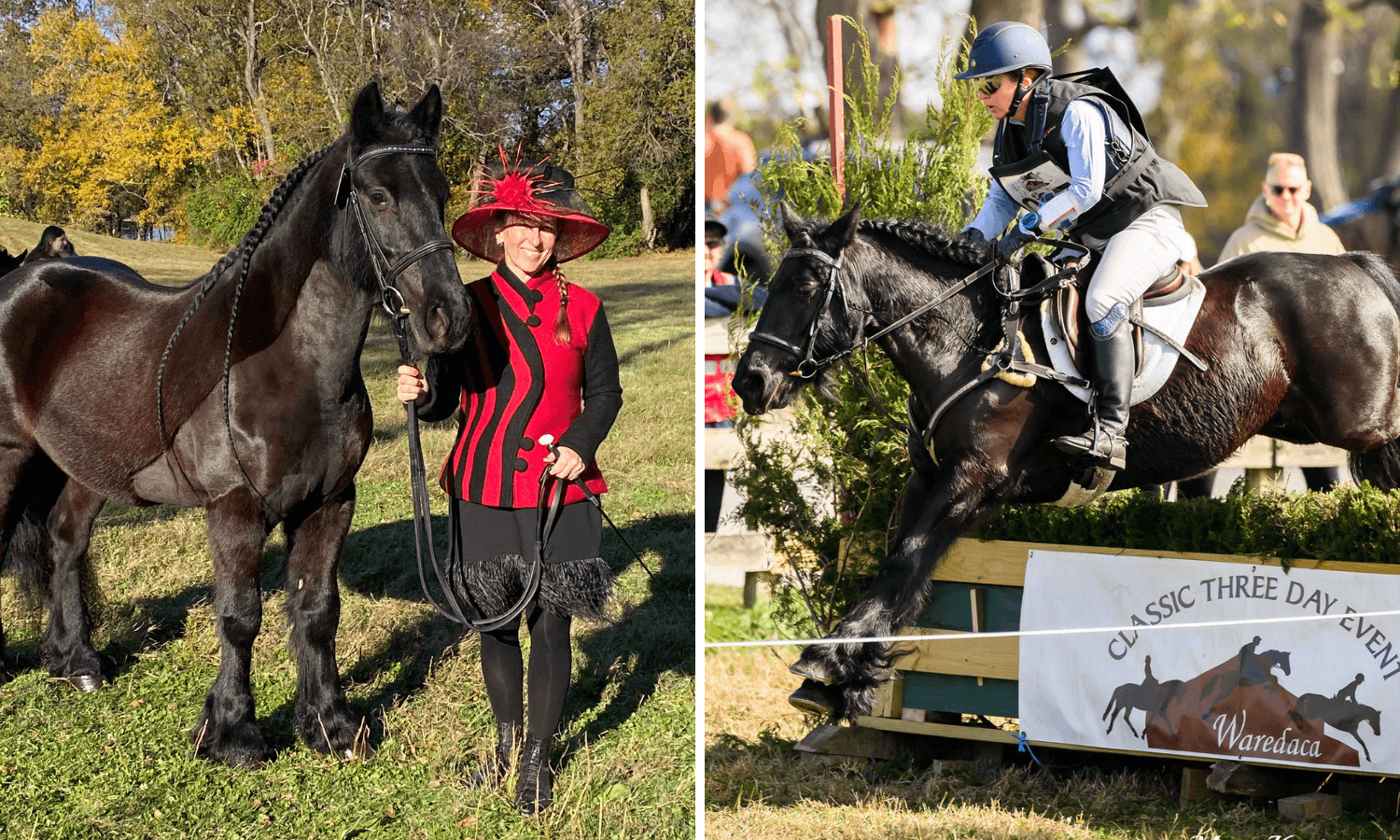Featured Clinician: Michael Barisone

The “Featured Clinician” article series is provided through a partnership between Event Clinics and the USEA.
Outside of the horse world, Olympic Dressage Rider Michael Barisone is perhaps best known as “the man who taught Stephen Colbert to ‘piaffe it’” on TV.
To dressage enthusiasts, he’s one of The Big Guys; a part of that extremely small group of extraordinary riders who has been to the Olympics both as a team member and as a coach.
To eventers, he’s often known as the man who has worked with Olympic team members Phillip Dutton, Boyd Martin, and Clark Montgomery, along with countless other top riders in the sport.
Based out of Long Valley, New Jersey and Loxahatchee, Florida, our team at Event Clinics was able to get a hold of him in a rare free moment over lunch during a recent clinic at Sprieser Sporthorse in Marshall, Virginia.
Keeping up with Barisone is no small feat as he’s in a constant state of motion. He’s often driving or flying to teach clinics when he’s not coaching his students at various national and international competitions. Often he’ll move repeatedly from sitting in a chair to standing in the center of an arena while teaching to better illustrate his points.
Barisone is well known for his wit and charisma when teaching, often working to make dressage both entertaining and accessible. We asked him about what type of rider he likes to teach, and what he expects from riders who attend his clinics.

Michael Barisone instructing a clinic at Sprieser Sporthorse. Photo courtesy of Lauren Sprieser.
For someone who has had such a long and illustrious career, with over 100 CDI Grand Prix wins under his belt including a World Cup Gold Medal (Hickstead, 1997), one might presume that Barisone might not be particularly interested in teaching riders who aren’t ready to achieve 80% at Grand Prix. Fortunately for our community, that’s not the case at all!
His expectation for clinic riders and attendees is not that they show up ready to tackle every movement from the Grand Prix, but simply that they are ready “to listen and try new ideas."
“It doesn’t matter if you have a green youngster who keeps ignoring your direction under saddle or you’re working on polishing up the two-tempi changes before the regional finals," he explained. “You’ve got to be interested in learning the building blocks of riding to move forward at this sport. The key to success is total mastery of basic concepts.”
“At the end of the day, if someone has a problem and I can help them get past it and succeed, that makes me happy,” stated Barisone.
As riders, we yearn to find and implement that magical key to horse training that will fast-track us to success and stardom. Barisone tells us though, “There are no instantaneous miraculous victories.”
Barisone says one of the best pieces of advice he’s ever heard came from USA Dressage’s Chef D’Equipe Robert Dover, who said, “The best riders in the world know exactly what they want and keep chipping away until they get it.”
There are clear reverberations of this mantra throughout Barisone’s teaching and riding. He repeatedly encourages riders to keep trying through gentle reminders that, “Giving up doesn’t work…determination will get you further than anything else."

Photo courtesy of Lauren Sprieser.
Barisone admits that being diligent with the foundational aspects of horse training can often be time-consumptive and seemingly unglamorous. He emphasizes, “It might be dull at times, but it will get you further than any other approach.”
We asked Barisone if his younger, determined self could’ve benefitted from any of the wisdom that years of relentless dedication have afforded him.
“A basic foundation is important for everyone. It doesn’t matter how gifted or talented your horse is. He still needs the basics,” he reiterated. “When you have a really special horse, don’t treat him any different than any other horse. He still has to be normal.”
He went on to emphasize one of his favorite teaching metaphors. “Training horses is a lot like raising children. All the kids in the eighth grade have to act the same, regardless of how far they might go in life. Don’t grant exceptions for inappropriate behavior or allow shortcuts because the horse is talented.”
Interested in seeing him in action? You can find tickets to audit his upcoming clinics as well as riding opportunities at www.eventclinics.com.















